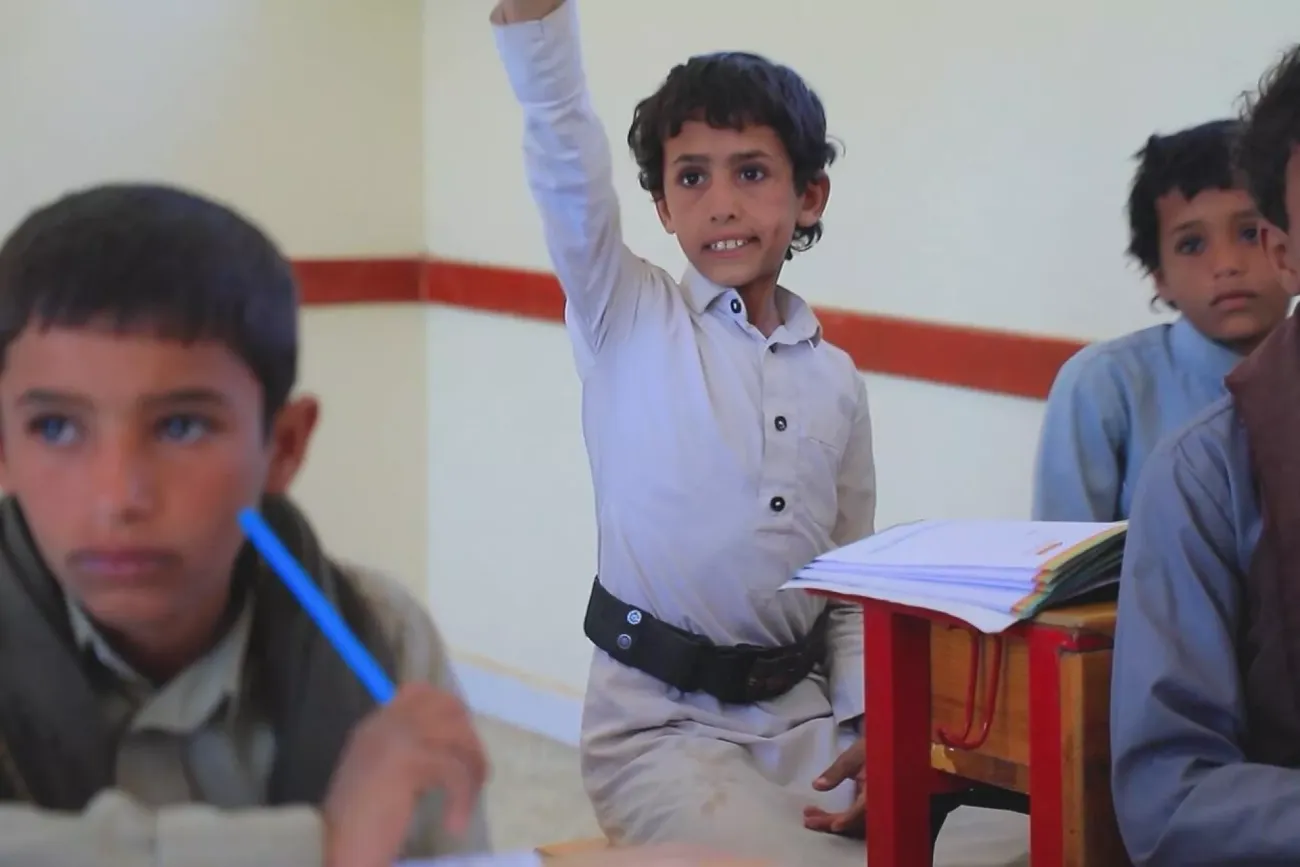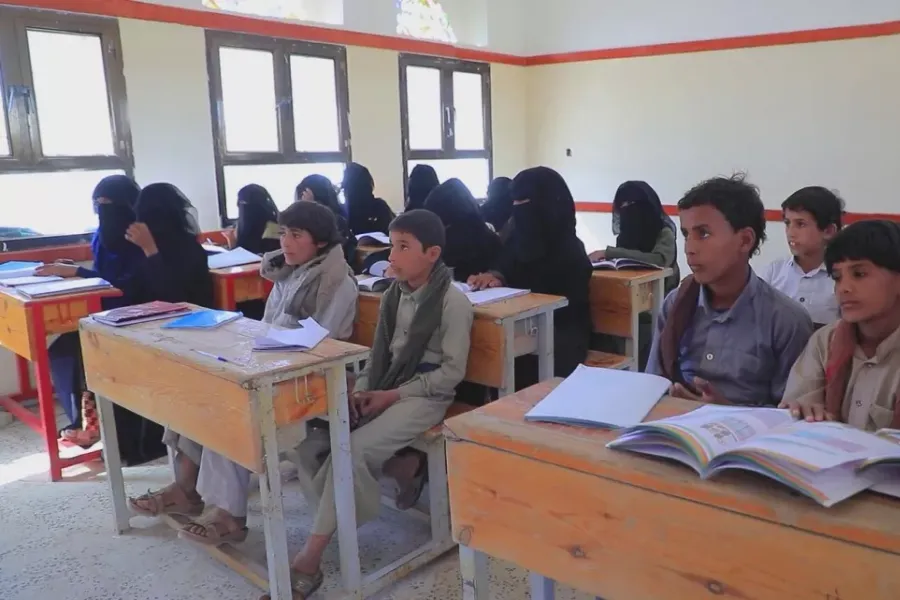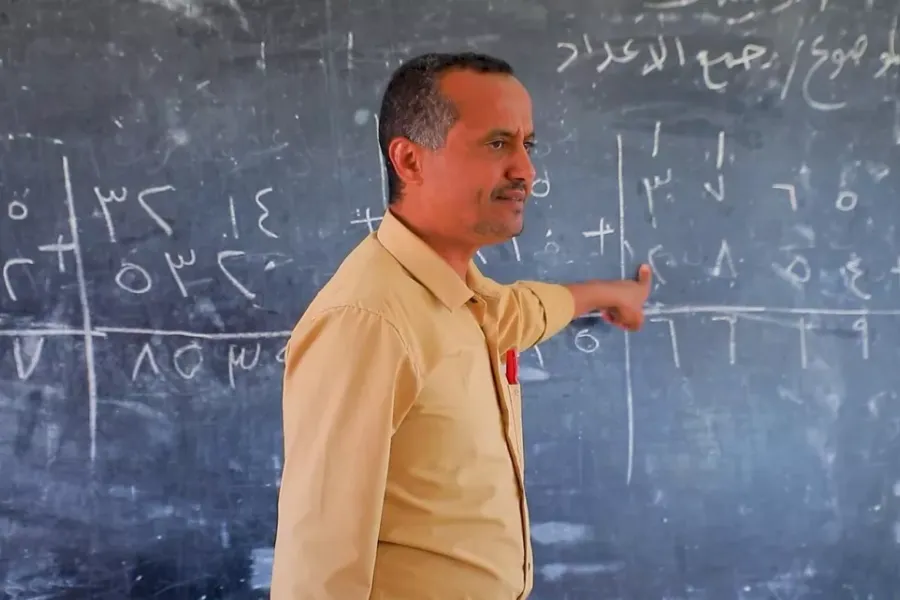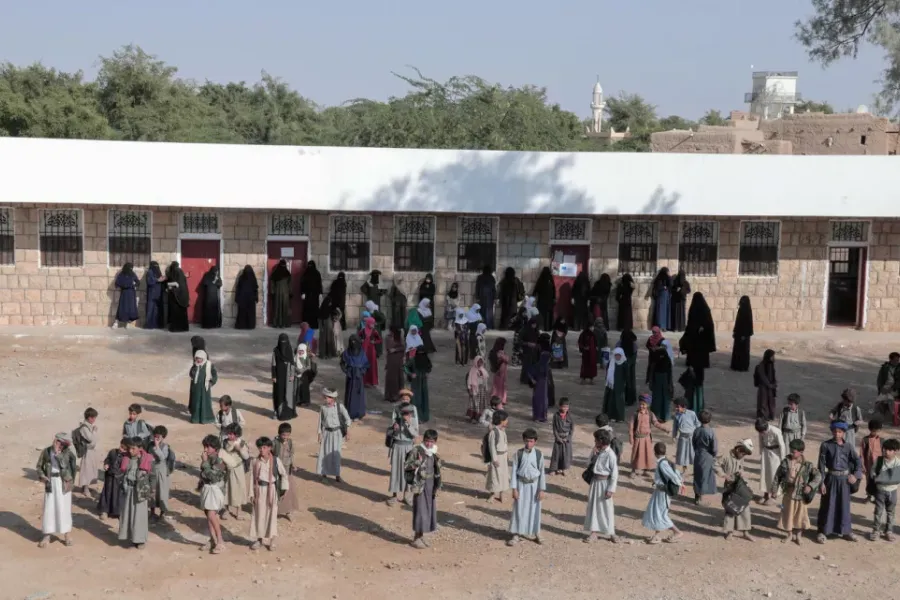UNICEF Yemen: Bridging the education gap of children displaced by conflict in Yemen

Literacy and numeracy programmes help children return to formal education in Marib
“Displacement was the most difficult thing I have ever experienced in my life,” says Mansor, a 12-year-old boy now living in northern Marib, Yemen. “We used to have a comfortable life, then the war broke out, so we were displaced. After the war, we returned to find our hometown and houses destroyed. Everything was lost.”
Mansor and his family fled to the city of Marib during the height of the conflict before returning to Majzar in the northwest of Marib Governorate two years ago. While missing out on education for one year, he grazed sheep to support his family.
“I live in the camp with my mother, father, brothers, sisters and nephews,” says Mansor, who has not been able to return to his original home. People in IDP camps, just like the one where he lives, often face inadequate shelter, poor water, sanitation and hygiene facilities, and a lack of basic services, posing additional threats to children.

Mansor is one of millions of children forced out of school due to the protracted conflict now entering its ninth year. According to the 2023 Multiple Indicator Cluster Survey, one in every four children of basic school age does not attend school in Yemen, and those who can attend school need to cope with overcrowded classrooms as well as overburdened and unequipped teachers.
Across the country, 4.5 million people, including 1.3 million children have been displaced since the escalation of the war in 2015, with over 30 per cent of uprooted families experiencing displacement multiple times, according to the 2024 Humanitarian Needs Overview. Amid displacement and harsh economic conditions, out-of-school children often engage in child labour or household chores to survive and support their families, making it even more difficult to catch up on years of lost education.
“Due to the unrest and poor living conditions, most children here work with their parents. They work in sectors like sheep herding, agriculture and trade. They work to help their families because of poverty. People here lack the most basic necessities,” said Hasan Husain Mobarak Hajer, the principal of Al-Sahary primary and secondary school.

While Mansor was willing to return to formal education, he needed to catch up on the learning he missed. So, when he learned about free compensatory classes to help children return to school, he rejoiced.
UNICEF, with the support of the European Union, now provides free literacy and numeracy classes, part of a series of non-formal learning programs children need to go through before taking an assessment to return to formal education. It equips students with basic reading, writing and calculation skills.
At Al-Sahary primary and secondary school where Mansor goes, formal education classes are offered to students in the morning while non-formal education is provided in the afternoon to support out-of-school children. The non-formal education support also involved the provision of incentives to teachers as well as their trainings.
Najeb Khaled Radmaan Al Haydary, a mentor living in the district, says the project mobilized community support and effectively attracted many children who required compensatory education. “During the two weeks before the programme started, we roamed through the community to identify children who had dropped out of school. We went to remote IDP camps, villages and homes to reach out to them,” he said.

“We noticed a significant improvement in the learning of our students,” said Hasan Husain Mobarak Hajer, adding that it was critical in the governorate facing a low enrollment rate of students on the back of massive displacement and unrest in frontline areas. “The support is a great step and we really need this to be continued,” he added.
Mansor has attended the class for more than three months so far. “I learned everything: reading, writing, multiplication, subtraction, division and everything,” Mansor said proudly.
Asked about his hope in the future, Mansor said, “I want to become a doctor,” adding, “I also want to return to my first home and play with my friends in the neighbourhood. I want to return with all my family members, including my aunts and uncles.”
Funded by the European Union, UNICEF provides non-formal education programmes for children who dropped out of school. So far, UNICEF supported 40,000 children to access basic literacy and numeracy classes as well as accelerated learning programmes in Taizz, Marib, Al Hudaydah, Hajjah and Ibb.

